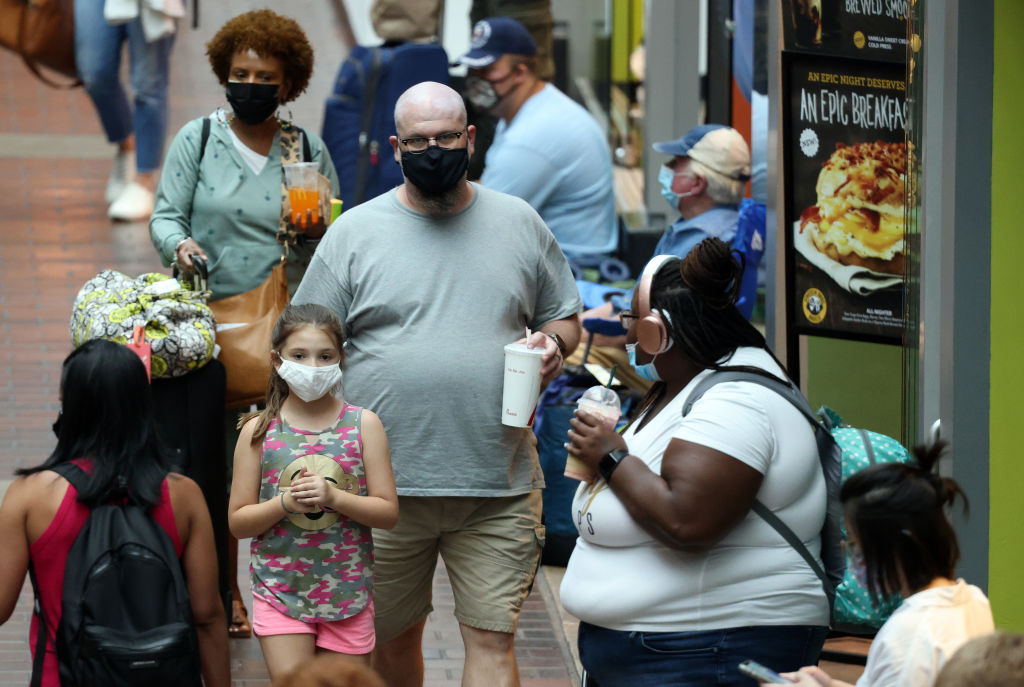The recent resurgence of COVID-19 has prompted experts to once again recommend that individuals mask themselves for protection against the virus.
Dr. Jonathan Reiner, a cardiologist, states, “Octogenarians comprise the highest-risk group for complications following Covid infection,” and suggests that President Joe Biden, who is 80, should consider wearing a mask in public, especially in crowded situations. Those with underlying conditions such as diabetes, cancer, organ transplants, heart disease, or mental health issues are also at a heightened risk.
Reiner further advises, “If you’re a caregiver for somebody who is at increased risk of complication following infection, then I think you should also consider putting a mask on in public places.” He emphasizes the use of N95 masks, which are now easily available, as they offer the most protection.
The US Centers for Disease Control and Prevention (CDC) advises individuals to “wear a mask with the best fit, protection, and comfort for you.” While they don’t currently recommend universal masking, they do suggest it in areas with high hospitalization rates due to the virus.
Dr. Eric Topol, a cardiologist at the Scripps Translational Research Institute, expresses concerns about crowded indoor areas with poor ventilation, especially given the current rise in virus cases. Additionally, the emergence of a new variant, BA.2.86, which has significant mutations, has caught the attention of the scientific community. Topol comments on the virus’s adaptive nature, saying, “it’s relentless.”
Recent data shows growing concern over the spread of the virus. The CDC has stopped reporting cumulative case counts, but increasing hospitalization rates have alarmed those monitoring the disease’s trajectory. Dr. Robert Wachter of the University of California San Francisco remarked on the doubling levels of the virus in wastewater and predicts a probable increase in hospitalizations. He comments, “It’s riskier that you will get infected now than it was a month or two ago… it’s time to whip out the mask again.”
Furthermore, some new variants might resist the immunity granted by the current vaccines and boosters. Wachter highlights that many haven’t received boosters in a while, leading to reduced collective immunity. Dr. Peter Chin-Hong adds that while a new booster targeting the Omicron subvariants is on its way, high-risk individuals should consider getting the existing bivalent booster to enhance protection.
As Covid cases rise, institutions like Morris Brown College in Atlanta have reimplemented safety measures like mandatory masks and physical distancing. Pediatrician Dr. Sara Bode emphasizes the importance of children attending school in-person for their overall well-being, even though health measures might need adjustments based on the disease’s spread.
Despite concerns in the medical community, many Americans aren’t altering their behavior in response to the recent uptick in cases. COVID-19 doesn’t top the list of public health threats for most, as per a recent Axios/Ipsos American Health Index poll. The study found that the number of adults wearing masks has been decreasing, and 82 percent haven’t taken a home COVID-19 test recently.
Wachter acknowledges the pandemic fatigue, saying, “everybody’s choosing their own adventure now.” Chin-Hong, however, emphasizes the potential long-term risks associated with a COVID-19 infection, beyond immediate symptoms.













